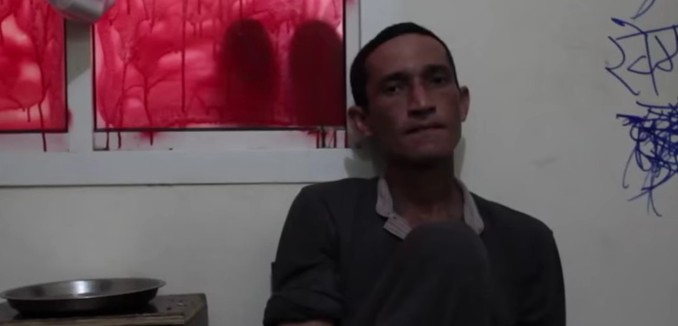Following ongoing criticism from newspapers and human rights organizations about systemic abuse within the Qatari labor system, the Persian Gulf monarchy is ramping up its public relations efforts. The scrutiny has been fueled in large part by the publicity surrounding the construction for the 2022 World Cup.
The Wall Street Journal reported (Google link) Wednesday that last month Qatar “formed a new agency to craft the country’s image abroad and staffed it with 23 Qatari communications graduates, mostly from the local campuses of U.S. universities Northwestern and Georgetown.”
“We are working towards having a more open policy when it comes to communications,” said a government communications director, who asked not to be named because he wasn’t yet officially appointed.
Qatar utilizes a system of labor known as kafala, under which migrant workers must have a sponsor in order to enter and leave the country, effectively rendering them fully dependent on their host companies. Documented abuses in the system include workers not being paid or having their wages significantly lowered, abysmal working and living conditions, and even death.
After The Washington Post reported that as many as 1,200 migrants had perished building World Cup venues since 2010, Qatari authorities went on the offensive.
Qatar responded that “after almost five million work-hours on World Cup construction sites, not a single worker’s life has been lost.” The government requested a retraction of the article.
The Post later clarified its article, saying it “should have made clearer that the figures involved all migrant deaths in Qatar” and that “we are unable to verify how many deaths, if any, are related to World Cup construction.”
Tim Noonan, director of campaigns at the International Trade Union Confederation, said Qatar needed to focus on improving conditions for workers, rather than issuing statements that were “false and dangerous.”
The Guardian reported last year that Nepalese migrants building World Cup infrastructure died at a rate of one every two days in 2014.
Ben Cohen, senior editor of The Tower, captured the contrast between the positive press coverage Qatar hopes to receive and the grim reality facing migrant workers in The Fruitful Game: How Qatar Uses Soccer To Polish Its Image, which was published in the October 2014 issue of The Tower Magazine.
As sports retailers happily fed the insatiable public appetite for child-size replica jerseys of Barcelona idols like Lionel Messi and Andres Iniesta, the Qatar Foundation, whose logo was emblazoned in generous letters on the front of the shirt, became globally recognized. In the process, Qatar’s external image transformed from that of a remote desert emirate, 94 percent of whose inhabitants are migrant workers denied the education and healthcare rights granted to Qatari citizens, into a powerhouse supporter of scientific and commercial research, whether through the Qatar Foundation or through the numerous universities, like Carnegie Mellon and Paris’s HEC business school, with campuses in Qatar. By 2013, the Qataris were so confident of their progress that they swapped out the Qatar Foundation logo on Barcelona’s shirt for that of Qatar Airways, with no objections on the part of the Barcelona management. …
“Qatar is playing a double game,” Haras Rafiq, the outreach officer for the Quilliam Foundation, a counter-extremism think tank based in London, told me. “On the one hand, its rulers are promoting a positive image of the country by, for example, hosting the 2022 World Cup and sponsoring Barcelona. On the other hand, they’re supporting and harboring extremism and terrorism in the Middle East and around the world. They also operate what I would term ‘apartheid-like’ policies domestically—go there, and you’ll see shopping malls that are for Arabs only. I, as a Muslim of Pakistani descent, can’t go into those malls.”
The most savage of Qatar’s apartheid-esque qualities lies in the treatment of its 1.4 million migrant workers. Over the last two years, reports have repeatedly emerged of barbaric working conditions in the World Cup stadiums under construction, of unsanitary and crowded living quarters, and of the myriad abuses enabled by a labor relations system, known as the kafala, which converts the employer-worker relationship into a master-slave one. A government-issued report admitted that nearly 1,000 South Asian migrant workers died in 2012 and 2013; workers who built the 43-story al-Bidda Tower, which contains the headquarters of Qatar’s World Cup organizing committee, weren’t paid for over 13 months.
[Photo: The Guardian / YouTube ]




